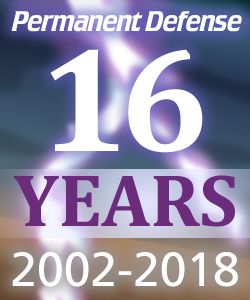Last week, the Washington State Senate voted overwhelmingly to pass a much-needed bill [read the text] that would clean up the initiative process by combating problems like signature fraud and petitioner misconduct: ESSB 5397.
Sponsored by Republican Senator Judy Warnick, ESSB 5397 requires ballot measure campaigns to report within ten days when they have hired a signature gathering company to circulate petitions for them and it requires the company to keep accurate, up to date records about their workers on file for the protection of the workers as well as the public.
Tim Eyman desperately opposes ESSB 5397 because he is against any legislation that would expose his initiative factory and the signature gathering industry to more sunlight.
Eyman contends that ESSB 5397 runs afoul of previous federal court rulings, notably WIN v. Rippie (decided by the Ninth Circuit Court of Appeals in 2000) and Meyer v. Grant (decided by the U.S. Supreme Court in 1988).
“Let us learn from these previous court rulings and not pass SB 5397,” Eyman wrote in an email sent to the media earlier today.
What Eyman doesn’t want reporters or interested citizens to know is that he is dishonestly conflating what’s actually being proposed with different bills that have been introduced in past legislative sessions. The bill now before the House is a piece of legislation that has been thoughtfully crafted to pass constitutional muster.
Proponents of ESSB 5397 — NPI included — have already studied and learned from court rulings like WIN v. Rippie and Meyer v. Grant, as well as Prete v. Bradbury and Initiative & Referendum Institute v. Jaeger — two cases Eyman conveniently hasn’t cited because they doesn’t support his arguments.
Everyone involved in either crafting or vetting the language of ESSB 5397 wants the legislation to be able to stand up to judicial scrutiny should it be passed and signed into law by Governor Inslee. That includes the bill’s cosponsors, the Public Disclosure Commission, Secretary of State Kim Wyman’s office, the Washington Food Industry Association, and the Northwest Progressive Institute.
ESSB 5397 does not resemble either of the statutes that were struck down by the courts in the two cases Eyman is talking about. Here’s a primer on all of the aforementioned cases.
WIN v. Rippie
In Washington Initiatives Now (WIN) v. Rippie, decided in 2000, the Ninth Circuit Court of Appeals struck down RCW 42.17.090(1)(g).
This statute required the disclosure of the names and addresses of individuals paid to collect signatures on initiative petitions, as well as the amounts paid to them. The Court held the statute was unconstitutional on First Amendment grounds.
Unlike that RCW, ESSB 5397 does not require the names of individual workers circulating petitions to be disclosed. What it does do is require that campaigns report within ten days the hiring of a signature gathering company to undertake a petition drive. It is the company’s responsibility to keep accurate, up to date records about its workers on file. Those records are not subject to public disclosure or even provided to state agencies unless the firm is approached by the appropriate legal authorities in case of a crime.
Meyer v. Grant
In Meyer v. Grant, decided in 1988, the U.S. Supreme Court unanimously struck down a Colorado law that prohibited the practice of paid signature gathering altogether. ESSB 5397 would not prohibit anyone from being compensated to circulate petitions for a ballot measure, so it doesn’t run afoul of the Court’s decision in Meyer v. Grant.
Prete v. Bradbury and Initiative & Referendum Institute v. Jaeger
In Prete v. Bradbury, decided in 2006, the Ninth Circuit Court of Appeals upheld a provision added to the Oregon State Constitution that bars the practice of paying by the signature. “Because the defendant has established an important regulatory interest in support of the Measure, the plaintiffs have failed to prove that the prohibition violates the First Amendment,” the judges wrote in their decision.
The Bradbury decision was handed down by the Ninth Circuit five years after the Eighth Circuit Court of Appeals upheld a similar ban on paying by the signature in North Dakota, in Initiative & Referendum Institute v. Jaeger (2001).
The Bradbury and Jaeger decisions — which are worth reading — further undercut Eyman’s unsupported contention that ESSB 5397 is unconstitutional.
Like paid lobbying, paid signature gathering is an occupation that entails influencing lawmakers to make decisions. (Under the Washington State Constitution, citizens are lawmakers thanks to the powers of initiative and referendum.) Signing a petition is akin to cosponsoring a bill in the legislative process. Citizens deserve to know, at the very least, what companies are being hired to lobby them for their signature.
Campaigns are already required to report expenditures made to a signature gathering company. But the time between when a campaign hires a signature gathering company and when it discloses that expenditure can be forty days or more. If a campaign hires a firm to run a signature drive on, say, June 1st, the report showing that expenditure may not show up until July 10th or later. In that example, the entire multi-week signature drive would take place during a period when the campaign isn’t required to tell the public who it has hired to lobby them. ESSB 5397 will require much more timely disclosure.
Under existing, well established public disclosure law, we require paid lobbyists to register with the Public Disclosure Commission so the public can see who is being compensated to influence their elected representatives.
Requiring campaigns to timely disclose what firms they’re hiring to lobby voters will significantly strengthen our campaign finance and reporting system.
Requiring companies that are in the business of circulating petitions for profit to keep track of their workers will make the industry more honest and increase the likelihood that law enforcement can successfully investigate instances of signature fraud or petitioner misconduct, both of which are growing problems.
Eyman and his amen chorus have argued on many occasions that it’s just not fair to treat paid signature gatherers any differently from volunteers.
But the reality is that paid petitioners are already treated differently than volunteers by the likes of Eyman because they’re receiving compensation for their labor.
If Eyman really believes some petitioners should never be treated any differently than others, he should refrain from asking anyone to gather signatures for him on a volunteer basis in the future. Using his logic, it’s just not fair to exploit people’s labor like that.

 We invite you to join us the following day — Friday, February 16th — to celebrate our 2017 victories (including the defeats of Eyman’s I-1550, Eyman’s I-947, and I-1552) and learn about our plans to ensure we maintain the strongest possible defense against future threats to our Constitution and common wealth, including Eyman’s self-serving scheme to keep our tax code broken and regressive by prohibiting capital gains excise taxes and income taxes.
We invite you to join us the following day — Friday, February 16th — to celebrate our 2017 victories (including the defeats of Eyman’s I-1550, Eyman’s I-947, and I-1552) and learn about our plans to ensure we maintain the strongest possible defense against future threats to our Constitution and common wealth, including Eyman’s self-serving scheme to keep our tax code broken and regressive by prohibiting capital gains excise taxes and income taxes. 


